The star of Netflix’s The Diplomat on how becoming a father at 19 drew him to faith and why he’s far more interested in people’s character than their showbiz connections
David Gyasi has recently returned to our TV screens, starring as Austin Dennison, the suave-yet-sensitive British foreign secretary, in the second series of Netflix’s hit political thriller The Diplomat. He is also fresh from taking to the stage at the Royal Festival Hall, where he co-hosted this year’s star-studded Premier Gospel Awards. In real life, Gyasi is as charming and debonair as his onscreen character. So far, so showbiz, you might think.
But despite Gyasi’s obvious success – his film and TV credits include Interstellar, alongside Matt Damon and Anne Hathaway, Troy: Fall of a City and Carnival Row – the actor’s journey to stardom was far from typical.
Unexpectedly becoming a father aged just 19 could have derailed his dreams but, instead, it was the moment he truly surrendered his life to God. David and his now-wife, Emma, were unmarried and still at college when they became pregnant. The young couple managed to put themselves through university while caring for their daughter, with Gyasi working night shifts at his local Tesco to pay the bills. It was hard graft, he says, but they made it – with a lot of help from their friends, family and faith.
I observe that the story of God bringing something beautiful out of our mistakes and frailties is a tale as old as time. Gyasi wholeheartedly concurs: “Yes and Amen.” Far too often, when we meet other people going through challenges, we forget that we have had our own, too, he adds. “So, it’s nice to be reminded of that, actually.”
He is, he says, far more interested in people’s character than their influence or income; a lesson he learned the hard way growing up. Whether it was his parents’ near-divorce (Jesus turned their marriage around, he says), losing their family home or his father’s illness, faith has always been an ever-present anchor – and his close circle of family and friends the chain that tethered him to it.
Now, 25 years later, David Gyasi is enjoying the fruits of his hard-won success. But I get the feeling that, as tough as it might have been, he wouldn’t change his journey even if he could. He’s learned far too much from it.
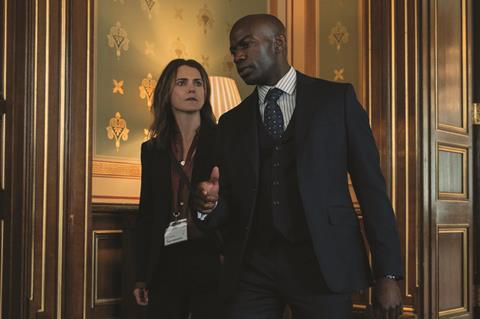
What was life like for you growing up?
I had a lot of fun as a kid. I was cheeky and smiley and thought that could get me out of any trouble and brighten anyone’s day. And it did – up until a point. I remember my mum and dad having this massive row one day, and I ran in and smiled, and it didn’t work.
Later on, my mum told me that they were on the brink of a divorce. My brother, my mum and I went to Ghana; Mum was going back to do the traditional divorce but, the night before, she encountered Jesus. Her twin brother said: “Look, I’ve met this person. I know it sounds weird but give it a go.” She prayed and gave it a go.
I think I was four or five. When we got back from Ghana, the atmosphere changed in the house. It was visceral. My mum said that Dad recognised the change in her, which made him interested in what she had found, and he recommitted his life at that point. It’s funny, sometimes we think: I need to change that person but, sometimes, the work’s done in us. That was the first encounter I had with this abnormal and otherworldly love…
Did you go to church regularly after that?
Yeah, we went to Kensington Temple (KT), which was massive, and then my aunt started a church in her flat. So, we would go to KT, and then we would go to her house and have food and fellowship. It was proper old school. I remember Mum and Dad having all-night prayer meetings, which were great for us kids, because we just stayed up as late as possible. While they were praying in tongues, we’d play Keep Off the Ground, jumping around the furniture.
At school, we would go to the harvest festival service, and I’d think: This doesn’t feel like church! It was so different. I couldn’t quite work it out. [Our church experience] was music, food, fellowship and doing life together, you know? We were a family. I learned a lot about what really matters beyond the labels, finances or who’s who. It was much more about connection and character.
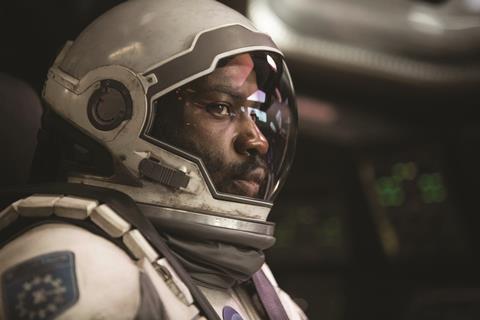
Are those things that you value as an adult?
Yeah. And I look for that in other people.
I had a conversation this morning with a guy I pray with. We were talking about an Instagram post: “Ten things you need to know before you die”. The points made sense, but they all revolved around ‘you’. Where was the encouragement to love other people? [I’ve always loved] bringing people together. I like everyone to feel seen, heard, valued, understood, and that marries with what I believe about Jesus Christ; the way he reaches out to so many people that he shouldn’t be reaching out to.
The entertainment industry doesn’t always have a reputation for being filled with people of depth and integrity. As a Christian, have you ever struggled to find people who share your values?
I don’t think I have. Actually, it’s one of the things that drew me to the entertainment industry. At school, I played for every sports team, at a time when there were the ‘sporty guys’, the academics, the Emos, the Goths…and then in the theatre world, suddenly there were no barriers; there was no segregation. We were all in it together. That, for me, was so powerful and moving. When you’ve got this goal of putting on a show, the facades have to drop, and that was one of the things that attracted me to this profession.
I’m quite explicit about who Jesus is
At what point in your life did you choose to really follow Christ for yourself?
When my daughter was born.
Emma and I got together at 16 and 17 and we had Elena when we were 18 and 19. We weren’t married, so that was a big no-no as Christians. There was very much a feeling that we would not have this baby.
It got to the eleventh hour, and we had to tell our college lecturer. It was a really odd thing; it felt like she was replaced by an angel that day. She said: “You need to go away, as individuals, and think about what you want.” I went away, and I just felt an overwhelming sense of peace. I had the best sleep I’d had in three months. It was like God was saying: “If you want to come on this journey with me, I’ve got you and your child, and I’m going to look after you.” I remember Matthew 6:33 ringing in my ears: “But seek first the kingdom of God and His righteousness, and all these things shall be added to you” (NKJV).
I’d been baptised before that, and I’d been a Christian before that. But, at 18, I was like: “Hey, let’s give this [faith thing] a go.”
Did Emma share your faith?
She did.
I was so annoyed at my mum because when we were dating, Emma was downstairs, and my mum said: “You go upstairs and get ready. I’ll sit with Emma.” When I came down, my mum announced: “So Emma’s a Christian now. Have a good night!” I was like: “What have you done?” Because, to me, it was like Emma wasn’t good enough before that. So, I would test Emma and say: “What are you thinking? You know you don’t have to do this.” But interestingly, she had a teacher in secondary school who was a Christian, and she was always fascinated by this teacher’s faith, and how she was with her students. She would have to explain it to you, but I think she would probably say that with the imminent arrival of our precious daughter, there was no other option. We didn’t have any other choice. We just leaned in.
How did you manage university with a newborn, working, keeping your faith real and your marriage together?
Emma went to the University of Roehampton [in south London] and I went to Middlesex University in north London. There were days when I’d take Elena and she’d be in the corner, colouring. Some days we’d meet halfway, Emma would take her and I’d go back to uni.
We had amazing friends who helped. Two Fridays a month, two of my best friends would come and just hang with us. This was a time when [they should have been] clubbing and enjoying themselves, but they would watch a movie [with us] and get a takeaway. Emma and I would fall asleep and wake up to find that they’d left £10 or £20 on the side to pay for the pizzas. It would make us really emotional. Ten years after we were married, we had a big party to renew our vows and celebrate everyone around us. It will always be one of the best days of my life.
I remember Mum and Dad having all-night prayer meetings
It helps that Emma and I both have immigrant parents. There’s something about being the children of people who have left their family and homes to start a new life, and dealt with some of the hostility of England, that puts some backbone in you.
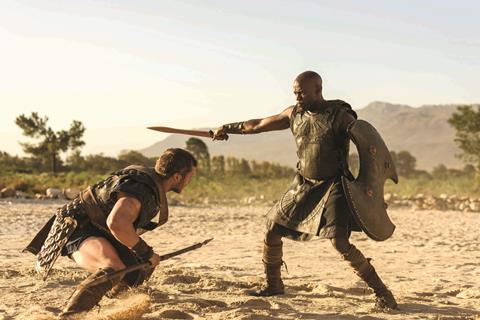
Is there more equality now? Or is that something that still needs to change?
I remember being in the cinema with my son watching Black Panther and him turning to me and going: “We wore something like that at Grandad’s funeral!” I thought: I never saw anything when I was younger that resembled my church or my ceremonies. For The Little Mermaid premiere [in 2023], my daughter and I went on a date and watched our first Black Disney princess. She was 21 or 22, but it was an incredibly emotional moment for us both.
We still have a way to go. The people in the decision-making rooms have not changed. I don’t know how many [streaming services] are run by people of colour. If you only have similar perspectives around the table, there’s blind spots, so until boardrooms reflect the world we live in – that’s where we’ve got to get to. There’s still huge gain to be had in the arts and entertainment [industry] by tapping into different makers and storytellers, and that excites me. Where can we go with that?
I was at a Parish Church Council (PCC) meeting recently and we were talking about equality in church. We talked about all the reasons why we should be doing it – because it’s right, because people have been overlooked – but what about the gain? If the body of Christ is all of us, reaching out to other people, then we are selling ourselves short if we don’t do that. There’s still a way to go, but we’re on an exciting path.
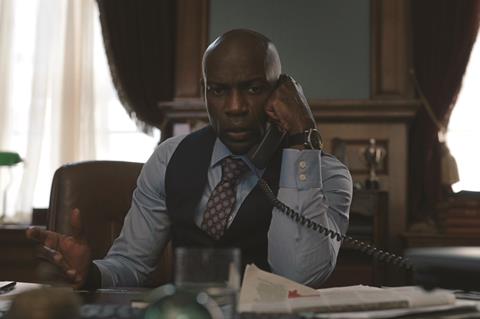
Do you feel comfortable being explicit about your faith in a work environment?
I’m quite explicit about who Jesus was and is.
When I was younger, I was in America, and I had to test for a lead part in a series that featured a Dorian Gray-type character whose sexuality was fluid. I was going backwards and forwards: Can I do this part? Can’t I do this part? I said to God: “I am going for a run, and I’m not stopping until I get an answer.” I got 30 yards up the road, and I was in floods of tears. I was overcome with love. I had to hold myself up on a fence! It was like there was a veil in front of me, and God said: “This veil is love. Everything you say must go through that, and everything you receive must come through that.” In the end, the job fell away. I don’t think it got commissioned, but it really helped me think about how I portray characters – how I portray humans – on screen and stage.
There have been times where I’ve read something and thought: I don’t like what this is saying. But that doesn’t get in the way of my career, it sharpens and focuses it. Hopefully, people will look back over my body of work and see some consistency, and how that invites society to ask questions of itself – and maybe even invites Christians to ask questions of themselves.
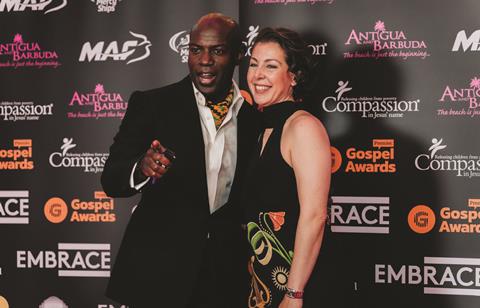
Do you ever get criticism from Christians about the roles you take?
I don’t really get involved in that. I’m open to different opinions, but sometimes [those opinions say] more about where other people are at with a subject, you know?
What’s your secret to staying grounded?
I like comfort. I like people around me to have nice things. I won’t lie and say that’s not there.
When I was growing up, we lost our house; we were effectively homeless. My parents used to have lots of parties and people round. [When we lost everything] lots of people were not around anymore – but I remember the ones who stayed.
When my dad was ill and had to have his fourth operation, my aunt said: “Right, let’s pray.” But I couldn’t. I left the room. My aunt said: “What’s happening for you?” I said: “I feel like we’ve done this, and I don’t understand why we have to do it again and again.” She said: “That’s completely fair. What I would say to you is this: at the top of the hill, where it’s sunny all the time, that’s the first bit where drought hits. There’s no vegetation. In the valley, you find the richest nutrients, because that’s where the water gathers, and the soil is moist.”
That’s always stayed with me. I remember those times, and they don’t scare me. I’ve eaten the fruit of those nutrients.
To hear the full interview listen to Premier Christian Radio at 8pm on Saturday 28 December or download ‘The Profile’ podcast premier.plus/theprofile













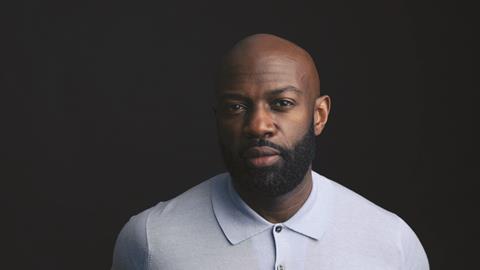

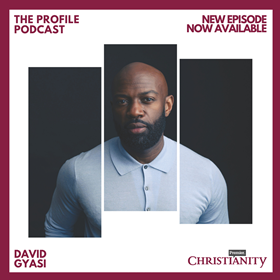
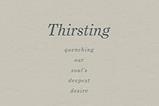

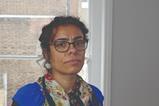




















1 Reader's comment